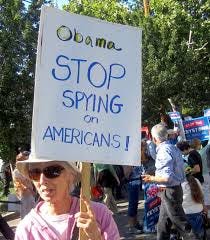Freedom in an Age of Terrorism

Now that we’ve determined that you’re not (necessarily) paranoid if you don’t trust the federal government, and are (understandably) worried about possible abuses tied to government snooping on your phone and e-mail records (see my most recent column for examples of lies and deception by Obama underlings), let’s move on to whether we’re better off or worse off when a top secret branch of the government keeps tabs on just about all of us.
To those who think that massive National Security Agency surveillance has created a police state here in America, let me respectfully suggest that you get a grip. We’re not living in a police state. Not even close. In a police state, the government listens in on your conversations, reads your e-mails, turns your neighbors into deputy government agents, plants listening devices in your bedroom, and then if they don’t like what they hear, they throw you in jail. If there’s a trial first, it’s rigged.
The very fact that we’re debating the issue of government surveillance – and openly criticizing the government -- pretty much proves that we’re not a police state.
How about the argument that mining data on our phone records and e-mails is a gross violation of the Fourth Amendment to the U.S. Constitution? No on that one too.
The Fourth Amendment restricts unreasonable searches on individuals. But the NSA isn’t targeting you or me as individuals. It’s looking for patterns of behavior that might threaten our security. Why, for example, did this person call Yemen 17 times last week? Look at it this way: When we see a police car patrolling our neighborhoods, we don't think our constitutional rights are being violated. The cops inside the car aren't targeting us. They're looking for suspicious behavior. We feel safer. That’s pretty much what the NSA is doing.
Remember, this is about fighting terrorism. We’re trying to catch people who want to blow us up as we commute to work on a train or as we go about our business in an office building or as we walk down the street chatting with a friend. President Obama is right: we can’t have complete privacy and security with no inconvenience.
But, yes, we have reason to be concerned that either a rogue bureaucrat or a much higher-up with bad motives may break the law and use the information the government is collecting for political purposes. Can you say IRS? If that happens, throw the book at the abuser. Put him or her away for a long, long time. But right now I’m more worried about terrorists, and the harm they certainly would do to us -- which is significantly different from the harm our government might do to us.
Some of you are worried about the slippery slope. If the government can keep records on who we call and when and how many times we do it, where can this kind of intrusion lead? Fair enough. But anti-terror measures, as the legal scholar Phillip Bobbitt has written, need to be “measured not only against the liberties these practices constrict, but also with respect to the liberties they may protect.”
Imagine what might happen if we get hit again. Let’s say it happens next time in New York. Will the authorities shut the city down the way they shut Boston down? Will they tell everyone to stay at home so the police can conduct door-to-door searches? Will they order all buses and trains to stop running? That's also a loss of freedom. That also curtails our liberties. And so I’m willing to let the federal government collect phone numbers to avoid all that.




